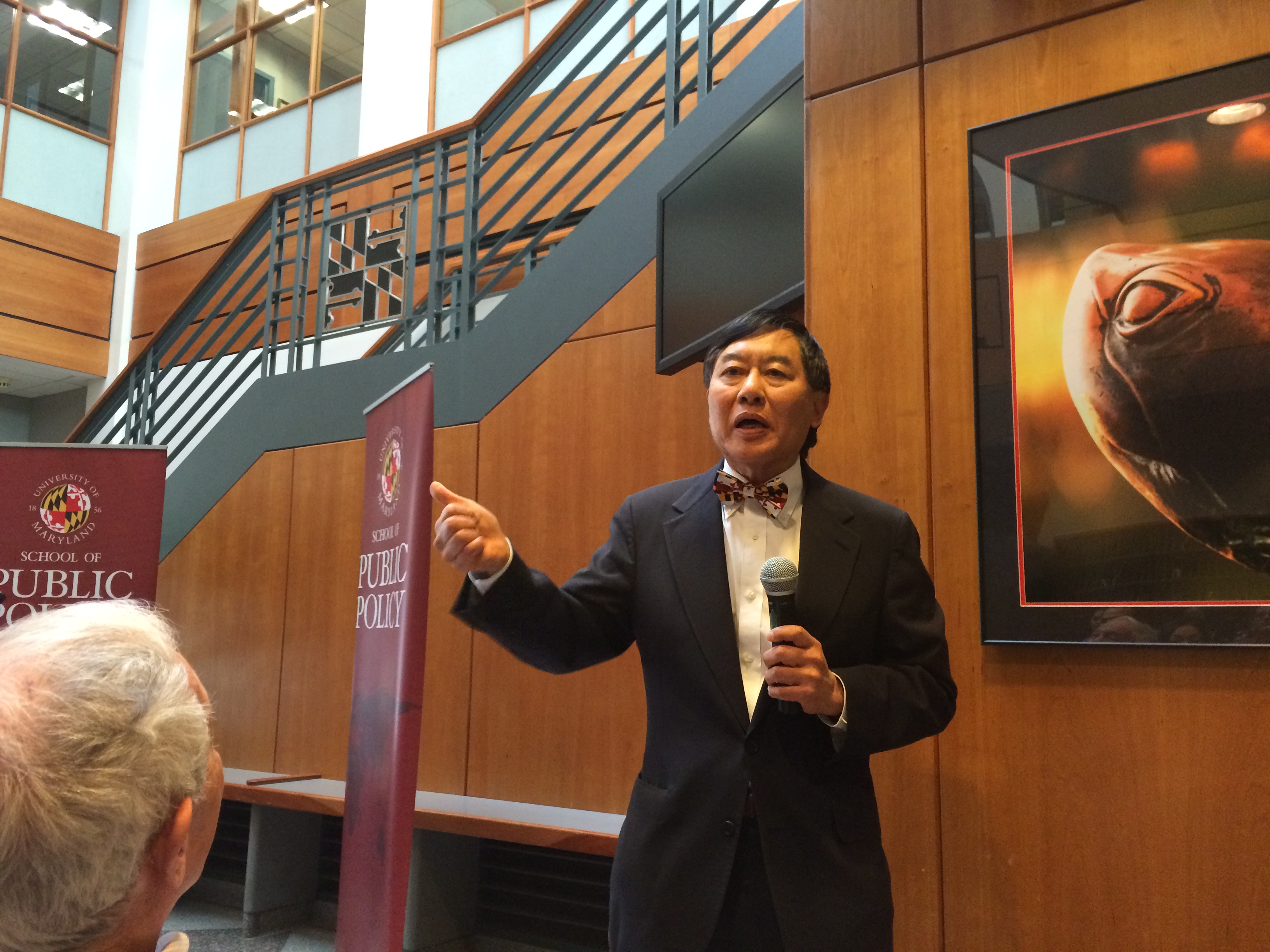It was clear that University of Maryland President Wallace Loh greatly admires former President Franklin Delano Roosevelt — whom he quoted many times during his speech Tuesday in Van Munching Hall while addressing the public policy school.
Loh, who is a faculty member of the school, discussed how he has learned to be a better leader, how he makes policy decisions and how he values education. During the talk, which was held by graduate students in the public policy school’s Social Policy Council, Loh explained he often finds people who disagree with him — something he learned is necessary from Roosevelt, he said.
“I have lots of supporters, I have lots of detractors, and I am proud of both,” Loh said.
He discussed many of the tough decisions he’s made in his five-year tenure as university president, such as cutting seven varsity athletic teams, moving from the Atlantic Coast Conference to the Big Ten Conference and instituting differential tuition.
These decisions were not only policy issues, but also political issues, he said.
“This is the most political nonpolitical job in the state,” Loh said, which is why he said he found his three years working in state government — not his doctoral degrees or other higher education experience — to be his best preparation for his work today.
Loh said he’s worked hard to form relationships in Annapolis, including a strong bond with Gov. Larry Hogan. Loh said his Asian-American background made for a quick connection with the Hogans upon meeting Yumi Hogan, the governor’s Korean-American wife.
“Race and ethnicity matter in this society,” Loh said, “There’s a bond instantly.”
Loh also shared leadership and decision-making advice with the audience, mainly public policy students.
He said to be a true leader, one has to make decisions, and to do that to the best of one’s ability, one needs a well-developed strategic vision.
“The importance of leadership is not to take people where they want to go — that’s the easy part — it’s to take people where they ought to go.”
Students and staff also asked Loh about certain policies, including this university’s role in K-12 education, the importance of the humanities and fundraising during difficult budgetary times.
Public policy graduate student Laura Checovich, who helped plan the event, said she was impressed that Loh was willing to field questions.
“We were expecting more of a speech, so to have him do conversations was valuable,” she said. “It just speaks to his expertise as a president that he’s willing to engage people and really listen.”
Sophomore government and politics major Adam Bloom-Paicopolos attended the event to hear the university president speak on policy and found his comments very relatable.
“I thought it was pretty inspiring,” Bloom-Paicopolos said. “I expected him to just talk about education policy, but he talked about leadership and the vision of the university.”
Loh said he prefers to take questions and listen to others so he can continue to learn, a process he called the “immortality business” and the main reason he continues doing what he does.
“I am in the business of education, in the business of helping transform people’s lives, and by so doing that, they can transform the lives of their children,” he said. “The impact of education stretches to eternity.”



